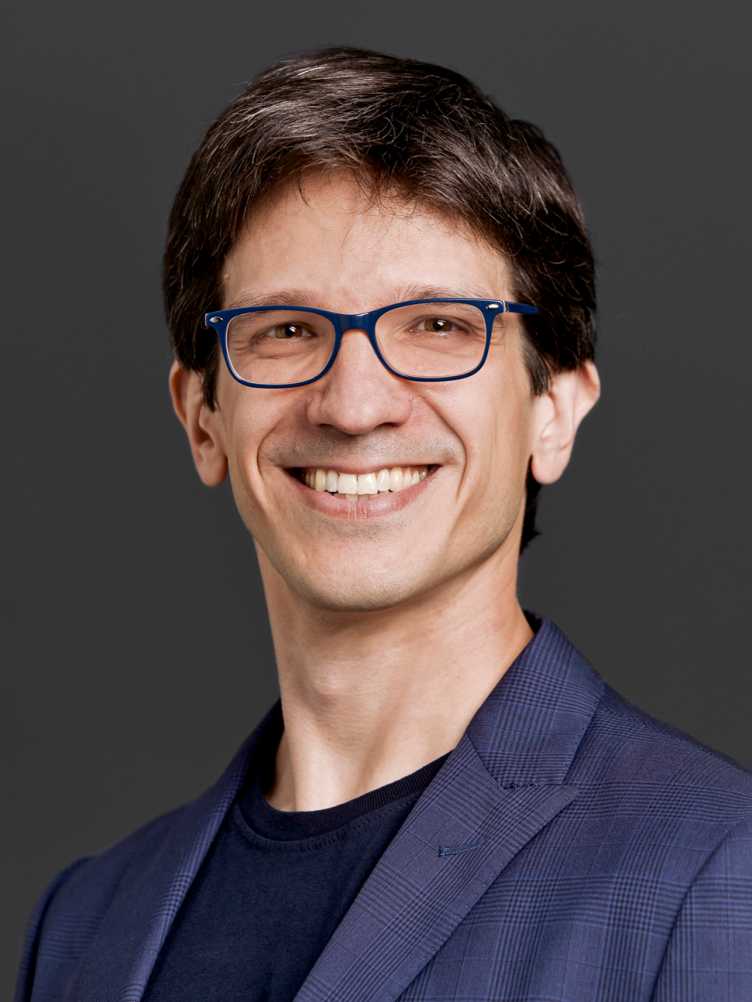Stunning fluid flows
Filippo Coletti will start as Associate Professor of Experimental Fluid Dynamics at the Department of Mechanical and Process Engineering on 1 August 2020. With his expertise in experiments in fluids, the 38-year-old Italian will be linking fluid mechanics to research fields such as geoscience and biomedicine.

How would you describe your research?
I design experiments that reproduce a broad range of fluid flows, my favorite being the ones in which multiple phases coexist and interact over a wide range of scales. Those are ubiquitous, and understanding them enables progress in countless areas, from weather forecasting to power generation to healthcare. I often use imaging to study the physics of such flows, which is a lot of fun.
What fascinates you about this topic?
When we fall in love, the aesthetic appeal often plays an important part. Fluid flows are visually stunning, and I am fortunate to spend my time creating and observing something so beautiful. They are also complex to the point of being mysterious; some aspects of fluid dynamics have eluded our understanding for centuries. And, fluids are everywhere! So many things in our environment are in a fluid state, and even more things can be described as flowing matter.
In which area do you see the greatest potential for experimental fluid mechanics?
I believe all natural flows can be imaged. I don’t mean visualizing them qualitatively. I mean that, with today’s tools, we can do quantitative in-situ imaging of the flow field in virtually every environmental and biological process – be it snowfall or rivers, blood circulation or human crowds.
Why did you decide to return to Europe and take up the position at D-MAVT after so many years in the U.S.?
I deeply enjoyed my time in the United States. It shaped me as an investigator and as a person. But I wanted to be free to ask the fundamental research questions that excite me, without being limited by the agendas of the funding agencies. ETH allows you to do just that. It is also a cathedral of engineering science, attended by some of the brightest researchers and students in the world. Plus, it is close to my family in Italy and to my extended family in Spain.
What is important to you in teaching?
More than anything, I want to convey my passion for the subject matter. Higher education is a choice, and as such it should be enjoyed by both teachers and students. And fluid mechanics is not an easy topic; you have to be determined to delve into it and master it. I see it as my job to motivate the students to rise to this challenge. This works best when I am able to tell a story, link the equations to the everyday experience, and give historical context to the science.
What do you recommend to students who want to pursue a career as a researcher? Which personal qualities do you need?
My advice is: Don’t be afraid. Jump into something you’re curious about. Remain open to move to a different topic or even a different field until you find what you really like. Then, focus on that subject and know that you must be willing to drill into it relentlessly for years. You will have to learn everything there is to know about it, and then question it all.
What do you do to recharge and to balance work and personal life?
I have always loved the arts and humanities, and I visit museums, libraries, or concert halls whenever I can. I feel it benefits my scientific pursuits. Our brains feed on different stimuli to generate new ideas. However, I spend most of my spare time with my family. My kids keep me busy! They are four and two years old, and they are determined to take over the world.
Short profile
- 2019-2020 Associate Professor, University of Minnesota, USA
- 2014-2019 Assistant Professor, University of Minnesota, USA
- 2011-2013 Postdoctoral fellow, Stanford University, USA
- 2008-2010 Doctoral degree in Aerospace Engineering, University of Stuttgart, Germany
- 2006-2010 Researcher at von Karman Institute for Fluid Dynamics, Belgium
- 2005-2006 Diploma in Turbomachinery & Propulsion, von Karman Institute for Fluid Dynamics, Belgium
- 2000-2005 Bachelor's and Master’s degree in Mechanical Engineering, Università degli Studi di Perugia, Italy